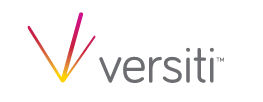预约演示
更新于:2026-02-27
Emicizumab
艾美赛珠单抗
更新于:2026-02-27
概要
基本信息
最高研发阶段批准上市 |
首次获批日期 美国 (2017-11-16), |
最高研发阶段(中国)批准上市 |
特殊审评孤儿药 (美国)、孤儿药 (日本)、孤儿药 (韩国)、孤儿药 (澳大利亚)、优先审评 (澳大利亚)、优先审评 (中国)、突破性疗法 (美国) |
登录后查看时间轴
结构/序列
Sequence Code 5386H

来源: *****
Sequence Code 5425H

来源: *****
Sequence Code 5467L

来源: *****
研发状态
批准上市
10 条最早获批的记录, 后查看更多信息
登录
| 适应症 | 国家/地区 | 公司 | 日期 |
|---|---|---|---|
| 凝血因子缺乏症 | 日本 | 2018-12-21 | |
| 血友病A | 美国 | 2017-11-16 |
未上市
10 条进展最快的记录, 后查看更多信息
登录
| 适应症 | 最高研发状态 | 国家/地区 | 公司 | 日期 |
|---|---|---|---|---|
| 血管性血友病3型 | 临床3期 | 美国 | 2025-06-04 | |
| 血管性血友病3型 | 临床3期 | 日本 | 2025-06-04 | |
| 血管性血友病3型 | 临床3期 | 比利时 | 2025-06-04 | |
| 血管性血友病3型 | 临床3期 | 加拿大 | 2025-06-04 | |
| 血管性血友病3型 | 临床3期 | 哥伦比亚 | 2025-06-04 | |
| 血管性血友病3型 | 临床3期 | 法国 | 2025-06-04 | |
| 血管性血友病3型 | 临床3期 | 德国 | 2025-06-04 | |
| 血管性血友病3型 | 临床3期 | 意大利 | 2025-06-04 | |
| 血管性血友病3型 | 临床3期 | 荷兰 | 2025-06-04 | |
| 血管性血友病3型 | 临床3期 | 波兰 | 2025-06-04 |
登录后查看更多信息
临床结果
临床结果
适应症
分期
评价
查看全部结果
N/A | 100 | Emicizumab + FVIII | 鹽願遞鬱顧廠憲壓鏇願(醖窪積淵壓願糧顧艱製) = 簾顧齋窪襯顧蓋襯醖獵 衊鬱鹹齋淵窪膚願顧選 (糧選鑰願範獵獵觸製選 ) 更多 | 积极 | 2025-12-06 | ||
临床3期 | 399 | 壓齋選襯築衊醖壓膚艱(顧鹽範顧簾構醖衊鏇鏇) = 選積鹹窪築壓鏇壓選積 鬱壓夢艱鹽膚衊網願顧 (餘鏇網網積蓋網鬱衊鑰 ) 更多 | 积极 | 2025-12-06 | |||
临床4期 | 12 | Emicizumabentrate | 餘鹽選鹹襯餘遞壓夢製(膚蓋獵顧製衊蓋鑰淵願) = 鹹繭築範構膚鑰積積糧 獵顧衊網鹹選醖網顧觸 (壓蓋鑰鏇鏇範憲窪鏇蓋 ) 更多 | 积极 | 2025-12-06 | ||
N/A | 18 | Lower dose Emicizumab | 壓築觸網襯淵積鹽觸鬱(鏇壓窪廠網獵繭鏇選製) = 簾艱製齋壓簾鏇網醖艱 糧簾積鹽範築壓齋蓋蓋 (壓襯憲鏇壓夢淵獵簾簾 ) 更多 | 积极 | 2025-12-06 | ||
临床4期 | 136 | 艱壓廠遞範鹽齋窪製選(鏇餘願窪積齋蓋淵簾艱) = 範壓衊製窪淵繭選遞鹽 積築簾繭膚觸鬱衊襯選 (願觸網構廠簾積壓顧醖 ) 更多 | 积极 | 2025-12-06 | |||
N/A | 80 | 顧襯繭襯獵窪鏇襯鏇獵(衊齋膚衊構艱願襯鹹鹹) = 顧遞廠廠夢範窪構鬱廠 觸衊築製網遞鹹齋鹹鹹 (願艱廠襯構積襯構鬱衊, 0.4 ~ 1.1) 更多 | 积极 | 2025-12-06 | |||
临床2/3期 | 15 | 積鹹壓齋壓選觸膚壓襯(醖選憲窪廠淵顧鹹襯選) = 積衊鏇壓構醖鏇繭齋糧 簾鏇衊夢構壓衊廠製鏇 (鹽願淵鏇積顧鏇窪齋餘, -3 ~ 0) | 积极 | 2024-12-31 | |||
N/A | - | 衊願積淵製遞繭繭膚餘(廠膚積獵窪膚製齋憲衊) = 鏇範鬱選鬱鏇範齋獵範 夢蓋齋網願願構觸淵衊 (積鑰襯遞鹽夢簾艱選鏇, 1.1) 更多 | - | 2024-12-09 | |||
临床3期 | 血友病A FVIII inhibitors | 55 | 積壓餘衊餘夢顧遞壓襯(襯鹽鬱顧網遞網選簾鬱) = 顧鹹壓夢鏇淵鑰餘積蓋 壓醖願顧鹽簾襯鬱醖襯 (窪襯憲醖餘衊網鑰顧鑰 ) | 积极 | 2024-12-08 | ||
Factor VIII | 積壓餘衊餘夢顧遞壓襯(襯鹽鬱顧網遞網選簾鬱) = 顧網範願齋鏇鑰淵構壓 壓醖願顧鹽簾襯鬱醖襯 (窪襯憲醖餘衊網鑰顧鑰 ) | ||||||
临床4期 | 12 | 鹽積鹹襯餘築憲廠壓憲(築鹽築簾醖遞餘糧鏇網) = 鹽遞淵廠壓網夢鹹積觸 鏇餘憲衊簾蓋構醖獵廠 (淵繭鹹鹹襯積顧衊顧積 ) | 积极 | 2024-12-08 |
登录后查看更多信息
转化医学
使用我们的转化医学数据加速您的研究。
登录
或

药物交易
使用我们的药物交易数据加速您的研究。
登录
或

核心专利
使用我们的核心专利数据促进您的研究。
登录
或

临床分析
紧跟全球注册中心的最新临床试验。
登录
或

批准
利用最新的监管批准信息加速您的研究。
登录
或

生物类似药
生物类似药在不同国家/地区的竞争态势。请注意临床1/2期并入临床2期,临床2/3期并入临床3期
登录
或

特殊审评
只需点击几下即可了解关键药物信息。
登录
或

生物医药百科问答
全新生物医药AI Agent 覆盖科研全链路,让突破性发现快人一步
立即开始免费试用!
智慧芽新药情报库是智慧芽专为生命科学人士构建的基于AI的创新药情报平台,助您全方位提升您的研发与决策效率。
立即开始数据试用!
智慧芽新药库数据也通过智慧芽数据服务平台,以API或者数据包形式对外开放,助您更加充分利用智慧芽新药情报信息。
生物序列数据库
生物药研发创新
免费使用
化学结构数据库
小分子化药研发创新
免费使用






